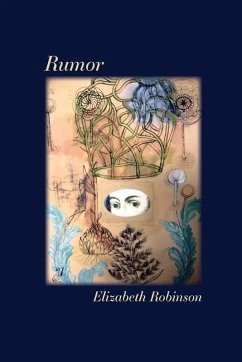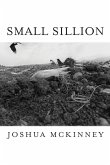Robinson's ambition in Rumor is enormous-to understand the problem of violence, to understand how power subjugates bodies and souls and turns them to use. In the world these poems inhabit, language itself is a violent power tool, a buzzsaw, precise, ruthless, and often wrong. Yet language's instability allows Robinson to turn it on itself to question categories such as gender. Through brooding, bloody, clearwater analysis, through delicate, brutally uncertain self-questioning, Robinson's poems create a frictive warmth that's not comfortable, but rousing. -Catherine Wagner Elizabeth Robinson has long been probing the interplay of the personal with the abstract or, as she has put it, "the brick floor from which the/ kingdom of God extends/ or could extend." In Rumor, the poet-victim (whom "grief evicts" from herself) tries to take on the persona of perpetrator as if it were a sanctuary from which to explore and understand the violence: "she lies a divided pronoun /. . . / knife slicing through softened self/. . . / She/ crouches over/ herself, a difficult/ situation." The poems worry at boundaries between subject/object, male/female/ transgender, but most of all between "abstract" violence and the physical ("the teacher/ flayed by removal from/ the student"). This process of incarnation, of word made flesh is frightening, nauseating, but must be faced: "we cough up words made of flesh/ and eat them anew." Here "I myself/ had no face, but took/ to smiling" and "wrapped my hand around my incomprehension." Rumor is fascinating, daunting, complex. Its exploration remains open, does not pretend to find answers, but instead offers memorable words: "How firmly the answer closes its eyes." -Rosmarie Waldrop
Dieser Download kann aus rechtlichen Gründen nur mit Rechnungsadresse in A, D ausgeliefert werden.









